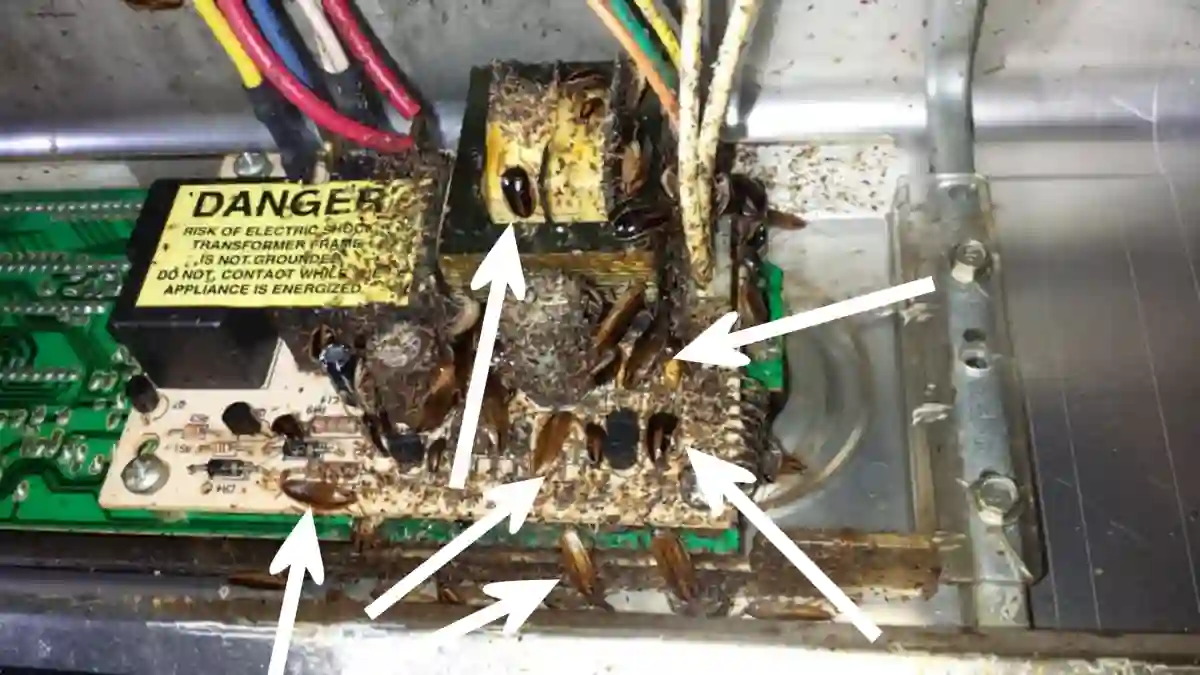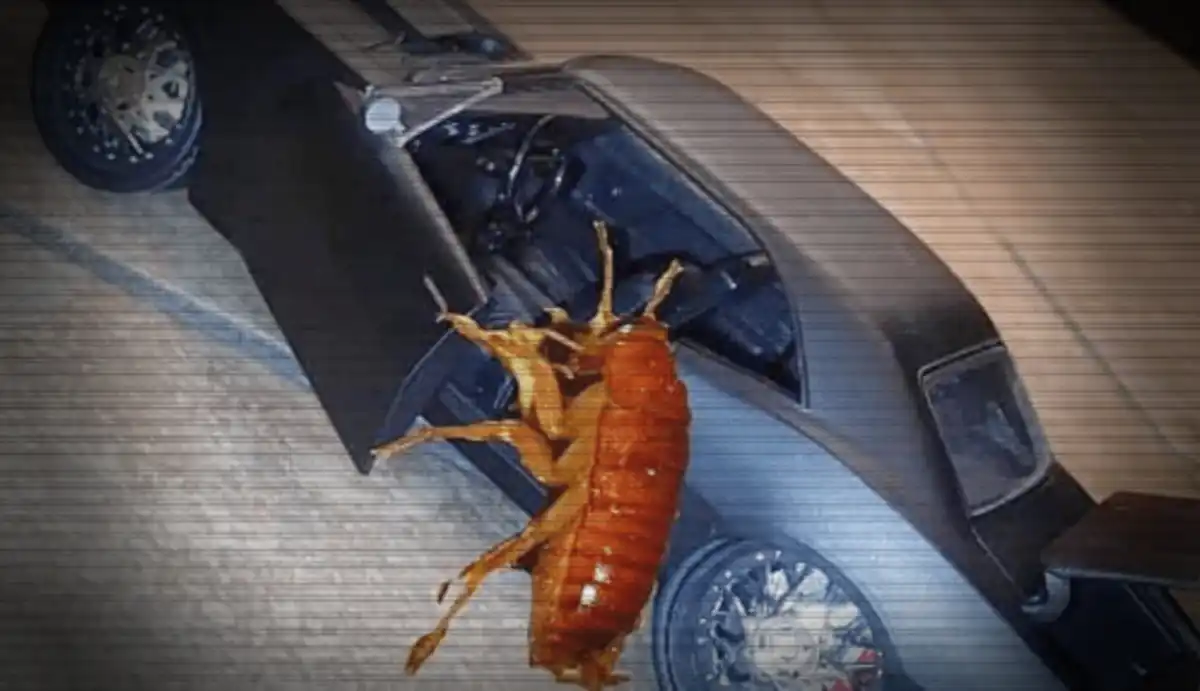German roaches can be a nuisance on your property and they are the most common cockroach species in houses, apartments, restaurants, hotels, and other institutions. Thus, you want to get rid of German roaches overnight. There are various elimination options available, such as gel bait, bait stations, and adhesive traps. Boric acid is another reliable solution for eradicating German cockroaches. In case the infestation is intense, a combination of methods might be necessary to eradicate the roaches.
How to get rid of German roaches overnight

For effectiveness, you will place the bait in dark, hidden areas in the kitchen and bathroom, such as behind appliances such as the refrigerator, oven, and toilet, and inside kitchen and bathroom cabinets. That being said, before are the ways to get rid of German roaches overnight:
1. Eliminate them with gel baits
Gel bait is supplied in a tube and is administered by squeezing the tube to release the gel. Apply the gel along the window sills and door frames, behind the trash bin, and along the cabinet doors in both your kitchen and bathroom. You can also apply the gel under the sinks where the drainpipe enters the wall in these rooms.
In your kitchen drawers, place the gel bait in crevices and cracks, and along the upper shelves and baseboards. If you have children or pets in the house, ensure that the bait is applied in areas that are not accessible to them.
2. Insect growth regulator is your best bet
An effective approach for swiftly resolving a German cockroach infestation overnight is to use top-notch roach baits paired with insect growth regulators. Among the recommended options are Invict Gold, Tekko IGRS, or Tekko Trio Foam. Another alternative some may opt for is the German Roach Spray kit, which features Advion WDG insecticide and Tekko Pro GIR. For a thorough extermination, conclude the process using Stryker 54 to eliminate any remaining roaches on the surface that has been sprayed.
3. Use a bait station
You could also use a bait station to get rid of German roaches overnight. First, locate the high-traffic areas in your kitchen and bathroom such as behind the refrigerator, microwave, oven, toasters, toilet, and other major appliances. Place the bait stations under your dishwasher, refrigerator, oven, washer, dryer, and hot water heater.
Bait stations consist of plastic housing with small holes for the cockroaches to enter and retrieve the poison inside.
Make sure to position the stations against walls and in corners to easily catch German cockroaches.
You can identify these high traffic areas by looking for German roach droppings which resemble ground black pepper. They are small, dark, and cylindrical in shape, resembling grains of black pepper or coffee grounds, and are usually about 1/8 to 1/4 inch in length.
4. Place a sticky trap
Sticky traps are an effective way to target and get rid of German roaches overnight using pheromones to attract them. Once the roaches enter the trap, they become stuck and eventually suffocate.
Set up the sticky traps in the same high traffic areas as bait stations, such as against walls and in corners. You want to avoid contaminating the traps with insecticides or cleaning products as this will deter the roaches from entering. If the bait is contaminated, it will no longer be effective in attracting the German roaches.
5. Boric acid can remove Germans overnight
Get a duster bulb, it is a convenient tool for applying a thin layer of boric acid in your kitchen and bathroom against German roaches. Squeeze the bulb to release a small amount of powder along the floor and walls.
Be mindful of the amount applied, as too much boric acid can be detected by the roaches and cause them to avoid the area. For precise application, don’t use a spoon.
Boric acid is available in your local hardware store. When using the acid, make sure to avoid applying it on countertops, particularly in areas where food is prepared.
You also want to kill the German cockroaches residing in between walls. This approach will require you to drill a hole in your drywall large enough to accommodate the tip of the duster bulb. Insert the tip into the hole and squeeze the bulb to dispense the boric acid inside the wall.
6. Combine boric acid, bait station, and gel bait
Boric acid in combination with gel bait and bait stations will work. However, a combination of boric acid with sticky traps won’t work. The traps will restrict the roaches from returning to their nesting area, thus preventing the boric acid from spreading to other cockroaches in hideouts.
Preventing German roaches from returning
Getting rid is one thing but taking preventive measures is another step you should take seriously. Besides, your renters insurance may not cover roach infestation, so it’s up to you to keep them out.
1. Keep your kitchen surfaces clean
The idea is to maintain a clean and hygienic environment by regularly removing food particles and cleaning up any spills on kitchen surfaces such as counters, tables, sink, stovetop, and others.
Sweep the kitchen and dining room floors, as well as other eating areas, at least five times a week, if not daily. Never leave dirty dishes and food in the sink overnight, otherwise, you ate inviting German cockroaches to a feast.
2. Store food in sealed containers
Keep cockroaches from invading your kitchen, and store food items such as flour, sugar, cookies, bread, cereal, crackers, and others in airtight containers. This will prevent the roaches from detecting the scent of food and entering your kitchen. Even your dog’s food is attractive to German cockroaches, so keep that out.
Ensure that the trash is emptied every night and covered with a tight-fitting lid.
3. Caulk up tiny holes and cracks
To prevent cockroaches from entering your kitchen and bathroom, use expanding foam to seal cracks, holes, crevices, and gaps along the bottom of the walls. Pay special attention to the areas around pipes under the sinks in these rooms. The expanding foam can be easily purchased from a local hardware store.
“Adult German cockroaches can hide in a crack 1/16 inch wide. Immature cockroaches tend to stay in even smaller cracks where they are well protected,” Agriculture and Natural Resources, University of California.





